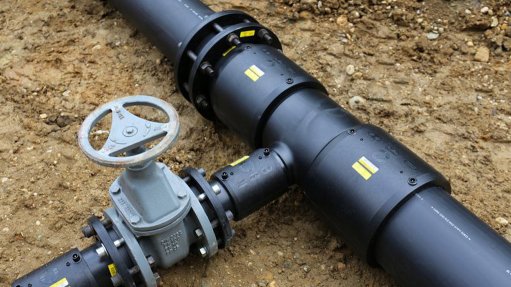
HIGHLY COMMITTED Astore Keymak remains committed to technology and solutions for the chemical, petrochemicals and industrial space
South African thermoplastic valves supplier Astore Keymak is engaged in research and development activities with its suppliers to launch new FIP industrial valves for chemical applications every second year.
“For aggressive chemical applications, such as sulphuric acids and hydrochloric acids, Astore Keymak uses thermoplastic valves in plasticised polyvinyl chloride, polypropylene, acrylonitrile-butadiene-styrene, chlorinated polyvinyl chloride and polyvinylidene fluoride,” says Astore Keymak product manager Francois van Vuuren.
He adds that the company also supplies polypropylene valves to the petrochemicals industry, with polypropylene pipe fittings, as well as polyethylene.
“With our valves, there are different product advantages, such as seals, product configuration and automation. In general, we have a very comprehensive range of thermoplastic valves specifically tailored for the industrial sectors.”
However, it has been challenging for Astore Keymak to get companies in the chemicals and petrochemicals sector to use the correct products for the correct applications.
“The industry has become accustomed to conventional materials such as stainless steel, whereas thermoplastic material cost benefits far exceed that of conventional products in markets such as food and beverage and the pharmaceuticals industry,” says Astore Keymak projects and piping supplier AGRU products manager Wayne Masters.
He explains that industry is still reluctant to use thermoplastic products from a real-time perspective owing to high prices, but that conventional materials such as stainless, galvanised steel do have challenges such as pitting, bacterial growth and hydraulic constraints over a period.
Additionally, the company has taken the welding of its thermoplastic products a step further by introducing infrared welding and infrared beadless welding, which reduces turbulent flow and increases longevity.
“Traditionally, the initial welding process was called butt welding, where the pipes touched the heater plate. With infrared welding, it does not touch the heater plate, reducing the bead size. There is also beadless welding that can be used for chemicals, also called infrared, whereby you place a silicon ball in the pipe and you weld it, which is called seamless welding,” says Masters.
These welding applications are mostly used in Europe, Asia and America for the semi-conductor industry resulting in AGRU creating a competitive edge. With a practically nonexistent semi-conductor industry in Africa, these technologies remain costly.
Further, Astore Keymak supplies PE 100 RC electrofusion fittings for the petrochemicals sector. High-density polyethylene is a carbon- and hydrogen-based product, thus, during the use in fuels, permeation and eventual swelling occurs.